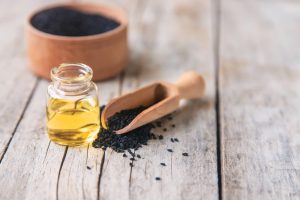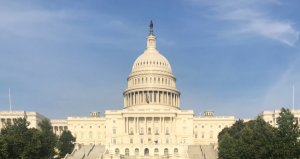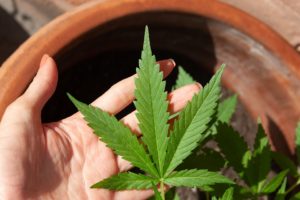There can be no doubt that consumers are demanding CBD and all thing hemp.
Panelists:
Leif Harrison, CEO, Americas Elixinol, Westmister, CO, www.elixinol.com
Duffy MacKay, ND, Senior Vice President of Scientific and Regulatory Affairs, CV Sciences San Diego, CA, www.cvsciences.com
Jason Mitchell, ND, Co-Founder and Co-CEO, HempFusion, Denver, CO, www.hempfusion.com
Marge Roman, Manager, Stay Healthy!, Las Vegas, NV, www.stayhealthylasvegas.com
Dylan Summers, Vice President of Government Affairs, Lazarus Naturals, Portland, OR, www.lazarusnaturals.com
David Wales, President, American BioSciences, Blauvelt, NY, www.americanbiosciences.com
Despite the fact that the Congress-passed 2018 Farm Bill legalized hemp-derived CBD, the U.S. Food and Drug Administration (FDA) has previously dug its feet in the ground, even going so far as issuing what some characterized as an anti-CBD Guidance Document in November 2019, one which it also sent to every member of Congress.
The agency released the guidance along with a bevy of warning letters.
Meanwhile, the FDA-backed epilepsy drug that contains a form of CBD (Epidiolex) racked up almost $300 million in sales in 2019.
Nevertheless, shortly before press time, the new director of the FDA, Dr. Stephen Hahn, issued a statement entitled “FDA Advances Work Related to Cannabidiol Products with Focus on Protecting Public Health, Providing Market Clarity.”
The statement noted that the FDA wishes to “foster innovation and promote consumer confidence” in CBD.
Dr. Hahn also said, “We recognize the significant public interest in CBD, and we must work together with stakeholders and industry to develop high-quality data to close the substantial knowledge gaps about the science, safety and quality of many of these products.”
So to help us find our way through the hemp haze, our panel of industry experts weighed in.
VR: Some would argue that the FDA was bound and determined, Congressional intent aside, to permanently crush the CBD market in the United States. However, based on statements at press time, it appears this stance has shifted.
Mitchell: I never thought it was their design to crush companies selling CBD out of some vicious intent. However, I also don’t think they’re being responsive enough, with the power that they actually hold, and what the value of their comments are to the retail community. I think they clearly know that when they make a statement like, “In our opinion, CBD in supplements is illegal,” that retailers will be ultra-conservative with how they proceed.
Now here’s my contention: I don’t believe that some magical new rules are going to be developed that will allow for the sale of CBD-containing products, whether it be in a dietary supplement, food or beverage. I think the FDA is struggling with whether or not CBD fits into the current legal framework that already exists. And these rules are already in play.
I think their biggest struggles are with the IND preclusion and human safety. If something is sold as a drug then it cannot also be sold as a supplement or as an additive in food or beverages unless other criteria are met, or if it is truly different and already has a history in the food supply.
If you’re doing an isolated or near-isolated CBD, which, in their [the FDA’s] eyes, is the adulterated form and considered to be too close to what’s delivered as a drug, they’re going to say that it can’t be a supplement and cannot be added into a food or beverage because it’s a drug.
Meanwhile, the dietary supplement industry is pushing back and saying, “Wait a minute, this is hemp, it’s cannabis, it’s not a drug.”
I am a bit agnostic from a legal perspective on whether an isolate or more of a full-spectrum-type oil should be more legal than another.
I think we should all just say hemp is legal now, with the Farm Bill, and so the constituents we get from it should be considered fair game. However, theologically, as to what a person should consume, I’m very devout on: I don’t think we should be using isolates, but that’s just my personal view. But I wouldn’t want to subject that to legal scrutiny or that we would eliminate anybody trying to sell isolates.
I believe that we should leave that to the [brand] marketers to convince consumers which one should be used correctly.
MacKay: FDA has the difficult task of balancing public safety and consumer access to hemp-derived products that contain CBD. CBD is a biologically active substance that works to improve symptoms of serious illness (at high doses of CBD isolate), while consumers experience benefits from using full-spectrum hemp extracts, with lower levels of CBD, to support day-to-day health. In addition, there is research that demonstrates that high doses of isolated CBD are not without risk.
One must sift through the science to determine where to draw the line between which types of CBD products are appropriate to be sold as drugs, versus dietary supplements and food. I know FDA scientists, even some who currently work in industry, and I can assure you that they are determined to do their job correctly, but this takes time.
After all, the FDA was tasked with finding a regulatory path for CBD and is still responsible for regulating $2.6 trillion worth of food, medical drugs and tobacco, which is about 20 cents of every dollar spent by U.S. consumers. This is a lot of work.
Summers: Consumer safety is at the heart of the FDA’s intent with CBD regulation. After Epidiolex entered the marketplace as an FDA-backed drug, it precluded hemp-derived CBD from being entered into the food supply.
We are considerate of the agency’s position—CBD is currently classified as a drug and, as such, the FDA is playing by its rulebook, taking precautions to ensure public health and safety.
That said, CBD is in fact in the marketplace without a regulatory structure, and as long as there is prohibition there will always be the risk that some CBD-containing products will be marketed with unproven medical claims and uncertain dosages and formulations. This is where the real consumer danger lies.
Our stance at Lazarus Naturals is that it’s imperative for the FDA to issue guidelines to ensure public safety. Aside from a few bad actors, and like most of the legitimate CBD industry, we want our customers to know what they’re getting whenever they buy our products.
Our priorities have always been sincerity and transparency, and we’re committed to making clean and trustworthy hemp products according to current good manufacturing practices and providing third-party lab results for every batch of our products, so consumers can see exactly what they’re getting.
Wales: I think that the FDA is complying with the existing law, whether that’s the right law or not I don’t know. DSHEA (Dietary Supplement Health and Education Act of 1994) regulations state that if a natural compound is submitted for testing as a new drug ingredient, that natural compound is a drug unless it has previously been sold as a dietary supplement.
Congress can pass new legislation, instructing the FDA to allow CBD for sales, requiring the formulation of new regulations. Bills are pending, but haven’t been passed.
In the meantime, the FDA can apply existing regulations to CBD, following the precedent of lovastatin. As I understand it, at first the FDA declared it would not allow sales of red rice yeast as a supplement because it contains a compound found in a drug (lovastatin), but later decided to allow sales as long as manufacturers did not manipulate the compound’s levels, didn’t make claims for this compound’s levels, and did not make claims to cholesterol lowering.
Applying that regulatory model to CBD suggests the FDA would allow companies to sell hemp extract as long as CBD levels were not manipulated, CBD levels are not stated on the label, and no disease claims are made.
Roman: I think the FDA will have difficulty showing safety issues with CBD, since a drug has already been approved. They need to find a way to regulate that allows the established companies that are following industry guidelines to continue and weed out the bad actors.
VR: On Feb. 10, President Trump’s FY 2021 proposed budget included an additional $5 million for the FDA to undertake greater regulatory and enforcement activities regarding CBD. While Congress ultimately establishes the budget for all federal agencies each year, please comment on this request and the wording associated with it, as to whether it is likely to be a boost for the category or an incentive for the FDA to alter its current course.
Summers: The narrative thus far has been that the FDA is limited in resources required to conduct expedient rule making for CBD, so President Trump’s proposed budget could light a fire for the agency to make an enforcement discretion ruling. It’s hard to say if it would be a boost.
We’re optimistic, as a hemp company, because it gives the FDA the grounds to do what it needs to do, but that decision could be unfavorable. They know what we want as industry professionals, but they could come out and say, “It’s a drug, period.”
At the end of the day, the FDA is concerned about long-term adverse effects and ensuring public safety, which are values we share at Lazarus Naturals.
Harrison: Added support for regulation is ultimately a boost for this category. Because now any manufacturer, anywhere in the entire supply chain, will be held accountable to the same basic, ground-level rules to which every other part of this industry will have to abide.
Farmers, CBD processors, finished-goods manufacturers, retailers, wholesalers, you name it—any one in the supply chain will have to meet minimum standards.
And that’s a very good thing, because those minimum standards ultimately will give consumers a higher degree of trust in the products they are taking. And isn’t that the goal we all should have—well educated CBD consumers who feel confident in the products they consume?
For any company that can’t meet the minimum standards that enhance this level of trust, it’s not even up for debate: They should exit this industry immediately or risk damaging it irreparably. MacKay: When the FDA is pressured by Congress or the president to “fix the CBD mess,” the FDA can easily point to competing priorities that are a higher risk to public health than CBD, like a food safety outbreak, vaping crisis or counterfeit drugs.
The way to motivate the FDA to address a specific topic is to provide funding and deadlines for solutions. This is what the FY 2021 proposed budget is attempting to do—however, the FY 2021 budget is still awaiting approval and will go through many changes, which can sometimes cause the government to shut down.
VR: On Jan. 14, 2020, U.S. Rep. Collin Peterson (D-MN), chair of the House Agriculture Committee, introduced legislation that is intended to “provide the Food and Drug Administration with the flexibility to allow hemp-derived cannabidiol (CBD) to be marketed in dietary supplements.” It’s a three-page bill that includes hemp-derived CBD in the definition of a dietary supplement. Could this bill, if enacted, provide the regulatory pathway the CBD market is so desperately looking for? Please expand.
MacKay: Yes, the Peterson Bill could fix FDA regulatory obstacles by removing the FDA prohibition against using CBD as an ingredient in supplements or food, since it was previously researched as a drug. Hemp extracts that contain CBD would be considered new dietary ingredients (NDI), and companies would be allowed to file NDI notifications, also known as NDINs. Subsequent to this would be the task of reversing the many backwards hemp and CBD state laws that were enacted in the absence of FDA regulations.
Harrison: As I understand it, the answer is, yes, this bill might provide a pathway. Because, after all, Congress makes law, not the FDA. But right now, lawmakers are doing nothing, so the FDA is filling that void with its legal opinions. However, those opinions aren’t backed up by the force of law.
If Congress simply would do its job and provide the needed leadership on this subject, the FDA would have no choice except to work within the framework provided by legislators. But since this hasn’t happened, the Food and Drug Administration has been left to its own interpretation of what CBD is and how it can be used.
Summers: The legislation introduced by Peterson outlines language for FDA regulation of hemp-derived CBD as a dietary supplement and food additive. If passed, the details would need to be hashed out by the FDA, including daily intake value/serving size, etc. for safe consumption, but at the end of the day, it clearly gives FDA guidance to effectively legislate against the IND Preclusion for CBD and introduce it into the food supply once regulations are set.
VR: Some states—including, for example, California, Louisiana, Michigan and North Carolina—prohibit CBD being added as a food or beverage ingredient or dietary supplement until it has been approved by the FDA for those uses. Is this a catch-22 situation?
Harrison: In many ways, yes. Part of the consequence of not having congressionally-passed laws on CBD is that the onus of legality has been left to the individual states. Each state has created its own approach on CBD—what’s legal, the forms that can be used, etc. So what happens? What’s legal and accepted in one state often is illegal in another state, including ones that share borders.
As a supplier, it’s a difficult challenge to be compliant in all states simultaneously without being forced to customize our label approach to each individual state and market. That’s a costly and timely endeavor.
MacKay: The lack of clear FDA regulations has led states to develop their own regulations. State regulations range from reasonable frameworks that balance consumer access and safety to regulations that are impossible to comply with, or in some cases a prohibition to selling CBD. This patchwork of state regulations is a major challenge to building a successful national brand. It takes significant resources to navigate the state-by-state regulatory landscape.
Mitchell: As we know, the FDA is not going to approve anything. They don’t approve dietary supplements, they don’t approve beverages, they don’t approve foods. What they do is create regulatory guidelines. If you are in compliance with the guidelines, then you can sell the products. The only things that the FDA approves are drugs.
These individual state laws make it difficult in so many ways due to state-specific labeling requirements, as well as many other unique mandates.
VR: In some states, there are other regulatory problems for CBD, including labeling issues (such as in Florida). Broadly speaking—or with specific state examples—please comment on the environment for CBD created by stringent, skeptical or outright hostile state laws, laws which very well might be disregarding the 2018 Farm Bill.
MacKay: The state-by-state patchwork of regulations is among the top challenges for serious national brands. It is a resource-driven burden that pulls resources away from important priorities like investing more into quality, science and safety. The most frustrating part is when junior state health officials interpret state law in ways that make no sense.
Florida is a great example. While many states require a statement similar to, ‘This product contains less than 0.3 percent THC’; Florida requires, the full name, “delta-9 tetrahydrocannabinol” to be spelled out (versus its abbreviation) and the addition of the partial statement, “on a dry weight basis.” Health officials have removed products from stores for this reason.
If only the state could consider communicating the correct information to consumers, they would realize that consumers recognize the term “THC” and would not understand what “on a dry weight basis” means. In fact, scientists don’t even agree as to what “on a dry weight basis” means.
Harrison: States clearly have the authority to enact their own laws regarding CBD. Unfortunately, though, until Congress provides overarching clarity for the industry, it will continue to be challenging for consumers everywhere to be able to turn to CBD as a fundamental part of their wellness journey.
If consumers want CBD—and it’s clear they do based on the industry’s phenomenal growth—then they are going to have to demand that their lawmakers step up and give them the legal options they seek on cannabidiol products.
Summers: While there is confusion in the ever-changing CBD industry, we believe lawmakers’ intentions are good when it comes to legislation.
Unlike us at Lazarus Naturals, legislators don’t eat, sleep and breathe hemp or CBD, which means a lot of the time they are simply looking to be educated on the facts.
The best understanding they may have about CBD is influenced by FDA’s stance, which is that they don’t like it. That’s why we created the Association of Western Hemp Professionals, and are an active member in groups like the U.S. Hemp Roundtable, American Herbal Products Association, Oregon Farm Bureau and the Oregon Industrial Hemp Farmers Association.
We recognize the importance of getting everyone in the same room to effectively speak to and educate lobbyists, politicians and decision makers about what makes the most sense for the industry, while welcoming everyone from established brands, to individual farmers, to even ancillary businesses like those in the analytical realm.
VR: Putting aside regulatory wrangling, what is the newly growing body of research showing for CBD as an ingredient?
Summers: Every day we learn something new about the potential of hemp and CBD and its observed benefits to our customers. In the coming months and years, we look forward to more research around long-term safety, bioavailability and overall effects on the human body. We’re committed to playing a role in the shifting regulatory and legislative process around CBD because we believe it’ll have a big impact on the industry’s ability to conduct more research on these things and more.
Harrison: It’s really premature to point to any research that is conclusive on the health outcomes of CBD use. In our industry, we are not even allowed to pursue FDA’s coveted GRAS (generally recognized as safe) status for makers of supplements and foods. So many of us are on a path toward achieving “self-GRAS” status by funding our own animal studies.
At Elixinol, we’re nearing completion on this, and we see it as an intermediate step toward showing our customers and the marketplace that we are serious in how we approach the baseline on what is considered safe and effective CBD use.
We want to keep communicating to the FDA in words, and actions, that CBD should be widely available and trusted for human consumption.
MacKay: CV Sciences has completed, to our knowledge, the first-ever randomized controlled clinical trials using a hemp extract that contains CBD. Results were presented at a conference last year and we are submitting the manuscript for publication now.
The study was designed to explore the effects of PlusCBD Oil on healthy people. We supplemented 65 overweight, but otherwise healthy people, with PlusCBD Oil or a placebo for six weeks. Findings include improvements in measures of sleep homeostasis, reduced appetite and enhanced quality of life. In addition, we collected extensive biometric data to support the safety of our products.
Wales: The new research that’s coming out relates to other constituents in hemp. This is why my company, American BioSciences, has been focusing research and development on whole hemp flower extract, in the manner of traditional herbal medicine.
Research shows that non-cannabinoid and cannabinoid constituents of hemp work better when they are combined, in their natural phyto-chemical form and proportions.
VR: What are a few of the most exciting applications for your branded CBD or non-CBD hemp ingredient or formula?
Mitchell: HempFusion’s goal was to provide products that actually fit the needs of the consumers where they’re at today. And so by taking, not only hemp-derived ingredients, but combining it with other scientifically validated ingredients with proper structure-function claims, we created HempFusion Stress Support, HempFusion Sleep Support (which is our No.1 bestseller) and HempFusion Energy Support.
In addition, we created tinctures, including black cumin seed oil. We also created specialty products, like HempFusion twists, that are loaded full of omegas. And guess what, scientific research indicates that a deficiency in omega-3s may lead to a problem with the endocannabinoid system, and so we need to take more. And then we’re also creating topicals that are over-the-counter-drug registered; we’re so proud of this.
In fact, we spent over a year going through the drug registration process, and we have eight OTC (over-the-counter) drug registered topicals that [were] launching in March, that are using ingredients which are not chemicals—so no parabens, sulfates and glycol, and so on.
Instead, we took a natural route to a drug-registered product—[and we are using] the proper ingredients that allow us the drug compliant claim, so we can make a pain relief claim because of the way they’re formulated.
These OTC-drug-listed topicals are created using a proprietary cosmetic complex that includes things like capsicum and arnica, but also includes hemp-derived CBD and other cannabinoids, as well as plant-based terpenes and so forth. We created this cosmetic blend as a base that we use to build our exciting OTC-registered topicals focusing on scientifically validated ingredients such as menthol, colloidal oatmeal, salicylic acid and so much more, which allow for more understandable claims for things like pain-relief, acne relief and eczema relief.
So HempFusion, from day one, has always been built on hemp combined with other things, because that’s what it’s about. It’s not hemp alone. It’s not CBD alone. It’s this salad of ingredients that work to support the body and where their customers are at and for what they need.
Harrison: We’re really excited about our new Elixinol products that soon will be available to consumers. For example, Elixinol’s new Omega Turmeric Capsules offer a way of combining our high-efficacy, high-quality, full-spectrum CBD with the added wellness ingredients of turmeric and health-promoting omega fatty acids. Early sales of this product even suggest that we haven’t made enough of it to meet consumer demand.
Another product we’ve just launched is a 1,000 mg Broad Spectrum Sports Gel that takes advantage of non-detectable levels of THC to allow more people to use it. Unlike our full-spectrum products that contain trace levels of THC (less than 0.3 percent), this broad-spectrum product contains all the beneficial ingredients of CBD without the risks associated with THC. People who face drug testing on the job—athletes, medical professionals, the military, police, fire and other first responders—now can take advantage of the health aspects of CBD. The product also features a special blend of arnica, capsaicin and camphor in a hydrating, non-greasy gel.
And Elixinol’s new Organic Balance Natural Tinctures are early industry USDA (U.S. Department of Agriculture)-certified organic products that are crafted with CBD-rich whole-hemp extracts. By using full-spectrum hemp oil, these tinctures are not only full of CBD, but they also provide the complete range of cannabinoids, flavonoids and terpenes that define the entourage effect.
Upcoming products include Body Comfort Capsules to support joints and normal range of motion. It’s made with the herbal extract, boswellia, which has been shown to ease inflammation. Our Stress Less Capsules will promote vitality and a more-balanced mood. They are made with ashwagandha and full-spectrum hemp oil rich in CBD.
We also will be releasing our Happy Belly Capsules to promote optimal digestive health by utilizing the power of fermented ginger and shiso leaf. And our Good Night Capsules will leverage melatonin to promote tranquil and healthy sleep cycles.
Wales: We find research shows that the most effective cannabis/hemp extract include all the constituents of the hemp flower in their natural chemical forms and proportions. So we describe our company’s products as “complete spectrum” extracts; they contain all the constituents in hemp flowers except moisture, fiber and protein (which turns out to be highly allergenic).
Summers: Right now, Lazarus Naturals is focused on expanding its offerings in full-spectrum tinctures and topicals, including balms and massage oils, because it’s where we see the most demand from our customers.
We just launched a Rose Massage Oil with 50 mg of high-quality CBD per serving, and we have some exciting innovations in the works for this year, including new formats across topical, ingestible and pet products—all created to support our mission to provide high-quality CBD for all, especially those who need it most at an affordable cost.
VR: What is the path forward for health food stores regarding CBD? What hemp or CBD products should they stock, what ones should they hold off stocking? Also, what should they tell their customers who are clamoring for these products?
Roman: I am very particular about the CBD products I carry. I ask for documentation of where and how it is grown, how it’s extracted, and if the company provides education for my staff. I also check the company’s website to make sure they aren’t making claims.
Harrison: That’s a great question. My assessment is that every store needs to make its own risk-management decisions on CBD. And that’s not easy to do with the state of uncertainty that overlies the industry right now. For example, the industry today can’t supply a simple answer about whether CBD is a drug, a food or a dietary supplement.
Until we can get regulatory guidance on a basic question like this, there will continue to be a lot of risk in this grey area of what CBD makers can and cannot do.
From what we’ve seen, smaller retailers seem to be more willing to take risks in selling CBD to their customers. These smaller retailers are willing to carry more SKUs than just the more traditional forms of topicals and ingestibles. They’re also typically more willing to experiment with offering CBD-infused foods and beverages, too.
On the other hand, larger retailers won’t take on as much risk, preferring to offer only CBD topicals for now. Even though topicals could, in theory, face the same legal uncertainty as other forms of CBD use, FDA enforcement in this marketplace is focused particularly on products that are ingested.
And remember, many retailers are facing a steep learning curve on CBD in many of the same ways as consumers. We work with stores in educating their staff so that they can better answer customer-facing questions on CBD. Such knowledge promotes consumer confidence, our ultimate goal, so that they may better achieve their wellness goals.
MacKay: Moving forward, health food stores should stock products from manufacturers they know and trust. Look for products that clearly disclose the amount of CBD per serving and include a QR (quick response) code on the label that link to a certificate of analysis.
Summers: Lazarus Naturals’ products are currently stocked at New Seasons Market based in the Pacific Northwest, and natural/health food stores are a logical place for CBD products, alongside other natural remedies and dietary supplements that consumers use to support everyday issues.
It’s really up to individual stores to tap into their customers’ needs in terms of stocking what makes most sense for them. From our experience, tinctures, balms and oils will support most consumers’ needs, but we look forward to seeing what’s next and working with our retailer partners to help them best meet their shoppers needs. VR













